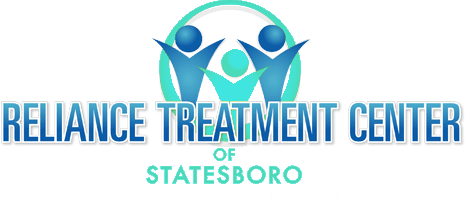Recovery from opioid addiction is a journey, and like any journey, there are inevitable obstacles along the way. Of course, one of the biggest recovery challenges is the risk of relapse. While relapse can feel daunting, it’s important to remember that it doesn’t mean failure—it’s simply a sign that adjustments may be needed in your recovery plan!
The good news? By understanding common risk factors and taking proactive steps, you can strengthen your long-term recovery and reduce the risk of relapse. With recovery, as with many other things in life, knowledge is power and prevention is empowering.
Understanding Opioid Relapse Risk Factors
Relapse is a common part of the recovery journey, but understanding the triggers and risk factors can help individuals stay prepared. Opioid addiction affects both the brain and body, making long-term recovery challenging. However, recognizing these risks empowers individuals and their support systems to take proactive steps that can help prevent relapse.
Relapse is often triggered by a combination of psychological, environmental, and emotional factors. Some of the most common include:
- Stress and Emotional Struggles – High levels of stress, anxiety, depression, or unresolved trauma can increase cravings and the risk of relapse.
- Triggers and Familiar Environments – Certain people, places, or situations associated with past opioid use can reignite cravings.
- Overconfidence in Recovery – Feeling “cured” and letting go of healthy habits or skipping support meetings can leave you vulnerable.
- Social Pressure and Isolation – Being around people who use substances or lacking a strong support system can make it harder to stay on track.
- Physical Pain or Medical Issues – The need for pain relief, especially if opioids were previously prescribed, can lead to unintentional relapse.
How to Reduce the Risk of Relapse
While relapse is a possibility, many proven strategies can help individuals maintain sobriety and rebuild their lives! A strong support system, healthy coping mechanisms, and professional guidance can make a significant difference in long-term recovery.
By staying informed and proactive, individuals can reduce their risk of relapse and build a future free from opioid dependence. While relapse is a possibility, there are many ways to safeguard your recovery:
- Build a Strong Support System – Stay connected with trusted friends, family, sponsors, or recovery groups who can offer encouragement and accountability.
- Identify and Manage Triggers – Recognize what situations or emotions make you vulnerable, and develop coping strategies to navigate them.
- Prioritize Mental Health and Stress Management – Therapy, mindfulness practices, exercise, and self-care can help you handle stress in a healthy way.
- Stay Engaged in Recovery Programs – Attending regular support meetings, therapy sessions, or medication-assisted treatment (MAT) can reinforce long-term sobriety.
- Develop Healthy Coping Mechanisms – Finding fulfilling hobbies, volunteering, or setting new personal goals can create a sense of purpose beyond addiction.
- Create an Emergency Plan – If cravings or triggers feel overwhelming, have a plan in place—whether it’s calling a sponsor, attending a meeting, or reaching out to a professional for support.
Recovery Is a Lifelong Commitment
Recovery isn’t about never experiencing cravings or struggles—it’s about learning how to navigate them without returning to substance use.
Remember: If a relapse does occur, it’s not the end of the road! More likely than not, it’s a sign that your recovery strategy needs to be tailored or adjusted to your unique needs. Seek support, reflect on what led to it, and adjust your approach moving forward. Every step you take toward healing is a victory, and you are not alone in this journey.
Contact Reliance Treatment Center of Statesboro for support. We are with you every step of the way.
Sources:
https://www.va.gov/WHOLEHEALTHLIBRARY/tools/reducing-relapse-risk.asp

